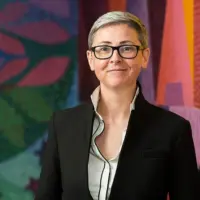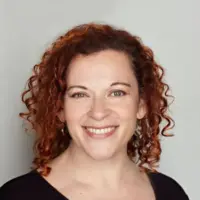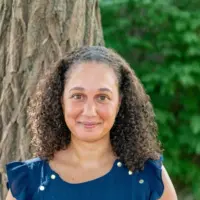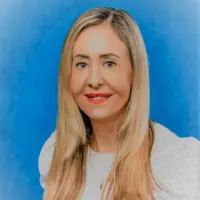About Casa Esperanza – Supportive Housing
Known as the center of African American culture in Boston, Roxbury, Massachusetts, is also home to Casa Esperanza – Supportive Housing. Established in 1984, this grassroots organization emerged in response to the need for culturally competent behavioral and social services for the Latine community. Their supportive housing offers a bicultural and bilingual peer community to hone in on recovery.
Adults and families can benefit from a comfortable, recovery oriented space to advance in their journeys. Their program offers onsite counseling, crisis intervention, ongoing case management, life skills training and primary healthcare.
Comfortable Family-Friendly Housing Options
What strikes me most is their convenient accommodations. You can choose between a safe, cozy studio, single room occupancy or family apartment. Each unit is also Section 8 eligible, ensuring you can access affordable housing. You’ll reside near public transportation, local attractions, parks and schools. That way, you and your family can easily access everything you need to flourish in recovery.
Vocational and Educational Support
Their dedicated team assists with reaching your employment and academic goals. You’ll benefit from access to job counseling, vocational training and educational opportunities. They also teach you how to manage your household and finances, including helping resolve domestic conflicts and other vital needs.
A Holistic Approach to Healing
I think their integrated primary healthcare services are fantastic. You and your loved ones can access wellness services, HIV and STD testing and diabetes management. You’ll benefit from improving your physical health to promote overall healing and sustained recovery.
Harm Reduction for Safer Communities
They also offer prevention and harm reduction services. You can participate in opioid overdose education and naloxone training. They even provide access to naloxone, an opioid overdose reversal medication.
Latest Reviews
Rehab Score
Location
Accepted Insurance
Other Forms of Payment
Sliding scale payments are based on a client's income and family size. The goal is to make treatment affordable to everyone. By taking these factors into account, addiction recovery care providers help ensure that your treatment does not become a financial burden to you or your family, eliminating one barrier to care.
Financial aid can take many forms. Centers may have grants or scholarships available to clients who meet eligibility requirements. Programs that receive SAMHSA grants may have financial aid available for those who need treatment as well. Grants and scholarships can help you pai for treatment without having to repay.
Medicaid is a state based program that helps lower-income individuals and families pay for healthcare. Medicaid covers addiction treatment so those enrolled can use their coverage to pay for rehab. When a program accepts Medicaid the client often pays very little or nothing out of their own pocket.
Medicare is a federal program that provides health insurance for those 65 and older. It also serves people under 65 with chronic and disabling health challenges. To use Medicare for addiction treatment you need to find a program that accepts Medicare and is in network with your plan. Out of pocket costs and preauthorization requirements vary, so always check with your provider.
Addiction Treatments
Levels of Care
Outpatient Programs (OP) are for those seeking mental rehab or drug rehab, but who also stay at home every night. The main difference between outpatient treatment (OP) and intensive outpatient treatment (IOP) lies in the amount of hours the patient spends at the facility. Most of the time an outpatient program is designed for someone who has completed an inpatient stay and is looking to continue their growth in recovery. Outpatient is not meant to be the starting point, it is commonly referred to as aftercare.
Sober living houses (SLHs), aka sober homes or halfway houses, are safe, substance-free, supportive living facilities for those recovering from substance abuse. Supportive Housing at Casa Esperanza offers a clean and sober environment that focus on maintaining recovery and developing living skills. Their supportive housing consists fo 37 residential units for individuals and families in recovery. All units are non-smoking.
12-step programs are addiction recovery models based on Alcoholics Anonymous (AA). A number of substance abuse programs (including some drug and alcohol rehab centers) use the 12 steps as a basis for treatment. Beginning steps involve admitting powerlessness over the addiction and creating a spiritual basis for recovery. Middle steps including making direct amends to those who've been hurt by the addiction, and the final step is to assist others in addiction recovery in the same way. 12-Step offshoots including Narcotics Anonymous (NA), Cocaine Anonymous (CA), Dual Recovery Anonymous (DRA), Sex and Love Addicts Anonymous (SLAA) and Gamblers Anonymous (GA).
Treatments
The goal of treatment for alcoholism is abstinence. Those with poor social support, poor motivation, or psychiatric disorders tend to relapse within a few years of treatment. For these people, success is measured by longer periods of abstinence, reduced use of alcohol, better health, and improved social functioning. Recovery and Maintenance are usually based on 12 step programs and AA meetings.
Addiction is a highly complex problem, and drug rehab in Massachusetts is often necessary to address it. These programs treat physical, mental, and relational issues that are involved. Treatment empowers individuals to manage these issues without the use of drugs.
Opioid rehabs specialize in supporting those recovering from opioid addiction. They treat those suffering from addiction to illegal opioids like heroin, as well as prescription drugs like oxycodone. These centers typically combine both physical as well as mental and emotional support to help stop addiction. Physical support often includes medical detox and subsequent medical support (including medication), and mental support includes in-depth therapy to address the underlying causes of addiction.
Substance rehabs focus on helping individuals recover from substance abuse, including alcohol and drug addiction (both illegal and prescription drugs). They often include the opportunity to engage in both individual as well as group therapy.
Programs
Adult rehab programs include therapies tailored to each client's specific needs, goals, and recovery progress. They are tailored to the specific challenges adult clients may face, including family and work pressures and commitments. From inpatient and residential treatment to various levels of outpatient services, there are many options available. Some facilities also help adults work through co-occurring conditions, like anxiety, that can accompany addiction.
Young adulthood can be an exciting, yet difficult, time of transition. Individuals in their late teens to mid-20s face unique stressors related to school, jobs, families, and social circles, which can lead to a rise in substance use. Rehab centers with dedicated young adult programs will include activities and amenities that cater to this age group, with an emphasis on specialized counseling, peer socialization, and ongoing aftercare.
Clinical Services
Research clearly demonstrates that recovery is far more successful and sustainable when loved ones like family members participate in rehab and substance abuse treatment. Genetic factors may be at play when it comes to drug and alcohol addiction, as well as mental health issues. Family dynamics often play a critical role in addiction triggers, and if properly educated, family members can be a strong source of support when it comes to rehabilitation.
Group therapy is any therapeutic work that happens in a group (not one-on-one). There are a number of different group therapy modalities, including support groups, experiential therapy, psycho-education, and more. Group therapy involves treatment as well as processing interaction between group members.
In individual therapy, a patient meets one-on-one with a trained psychologist or counselor. Therapy is a pivotal part of effective substance abuse treatment, as it often covers root causes of addiction, including challenges faced by the patient in their social, family, and work/school life.
Life skills trainings involve all the skills a person must have in order to function successfully in the world. These include time management, career guidance, money management, and effective communication. Truly successful addiction recovery is based on the ability to not only live substance-free, but to thrive. Life skills teaches the practical necessities of functioning in society, which sets clients up for success in life, and therefore sobriety.
Amenities
-
Residential Setting
Staff

Emily Stewart
CEO

Diliana De Jesús
Chief Development Officer/Deputy Director

Jessica Evans
COO

Melisa Canuto, LISCW
Chief Clinical Officer

Merceditas Gimenez-Weltman
CFO

Ani Rodriguez
Chief People & Culture Officer

Sarah Trieweiler
Chief of Staff

Carlos Cappas
President

Maria Torres
VP
Contact Information
8 Dunmore St.
Roxbury, MA 02119




